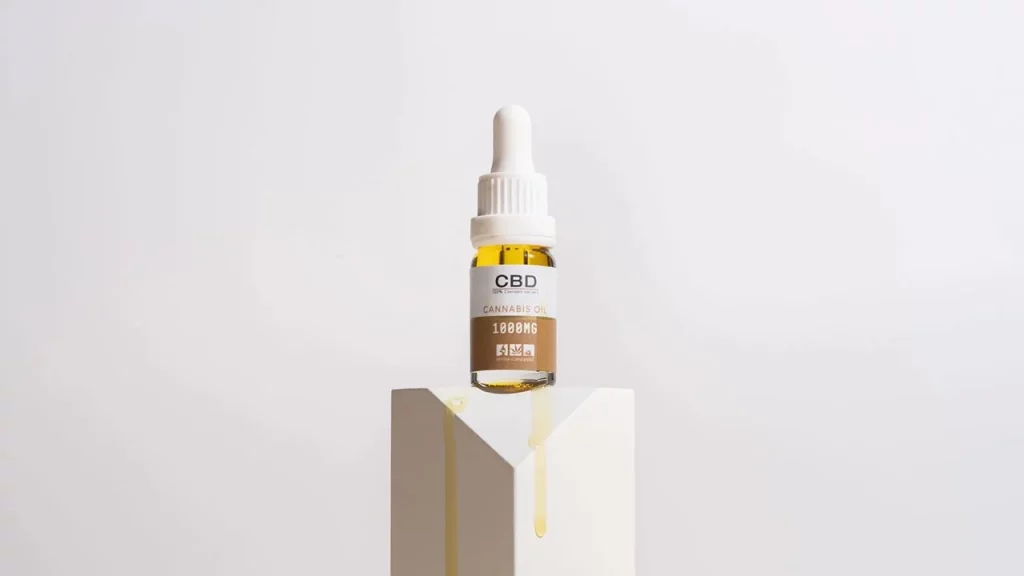DR Christian on 'is CBD Safe?'
CBD, when consumed in isolation (without the presence of THC), is considered safe and does not exhibit addictive properties. However, this scenario shifts when the product includes THC.
Understanding the purity and composition of CBD products holds significance, and it’s advisable to favour manufacturers who showcase high production standards, often evidenced through a Certificate of Analysis.
BRITISH CANNABIS™ Answers Your Questions
Is CBD safe for me to use?
As CBD UK has gained widespread recognition in the health and wellness domain, consumers have rightfully been interested in determining its safety for use.
CBD, short for cannabidiol, is a non-intoxicating compound derived from the cannabis plant. Its potential benefits span a range of conditions, including alleviating migraines and anxiety.
One of the most notable effects of CBD is its capacity to induce a calming sensation, which significantly contributes to its surging popularity.
Primarily available in the form of CBD oil, CBD is also accessible as an extract, a vaporized liquid, and an oil-based capsule. The oil is produced by extracting CBD from the cannabis plant.
CBD is found in a wide array of products, both online and in physical stores. These encompass dietary supplements, bath soaks, beverages, and various types of food items.

Unlocking CBD's Safety Secrets
Wondering about its safety? Here’s the scoop
When crafted by reputable manufacturers and used according to the right guidelines, CBD is absolutely in the clear when it comes to safety.
Take a gander at a 2018 report from the World Health Organization, where they put it plainly: CBD is generally well tolerated with a good safety profile… to date, there is no evidence of … any public health-related problems.”
Safety uncertainties crop up when CBD and THC get tangled in the mix – THC being the jazzy element that gives cannabis its euphoric edge. In the UK, CBD products are all good, while THC still plays the outlaw.
Hold on tight, because the cannabis plant boasts a treasure trove of over 100 different cannabinoids, these snazzy chemical compounds that love to twirl around cannabinoid receptors in our brain cells, setting off fireworks of neurotransmitters.
These little rascals hit different buttons in the body and strike poses of varying intensity in different nooks of the plant.

Transforming Body, Mind, and Health
CBD stands among these fascinating compounds, demonstrating its influence throughout the body, including specific regions of the brain. It’s become quite the sensation in the realm of health, showcasing its potential benefits.
Unlike its counterpart THC, CBD maintains its reputation as a non-intoxicating wonder. Numerous studies have unveiled an array of positive perks linked to CBD usage.
A recent study, hot off the press in the journal Molecular and Cellular, has spotlighted the connection between CBD oil and maintaining a healthy weight. This groundbreaking research has pinpointed three distinct factors behind the phenomenon of “fat browning,” a process that turns the perilous white fat often associated with obesity and diabetes into proactive brown fat cells.
These cells are believed to lend a helping hand in the weight loss journey by incinerating those surplus calories through thermogenesis, the body’s very own heat-generating performance.
CBD's Multi-Faceted Potential
That’s not all – according to Men’s Health, CBD takes an active role in diminishing the presence of proteins responsible for generating fresh fat cells, while simultaneously amping up the population of mitochondria within those trusty brown fat cells.
The end results? Researchers hypothesize that this could potentially supercharge their ability to melt away fat.
On a different note, Harvard Health Publishing (HHP) unveiled a report highlighting CBD’s prowess in tackling certain forms of childhood epilepsy that commonly remain unresponsive to conventional antiseizure medications.
Moreover, clinical trials have unearthed another facet of CBD’s potential: lending a hand in alleviating intense anxiety and insomnia.
A deep dive into Molecular Neurobiology revealed that CBD might have the capacity to alleviate depression in as little as one day, a stark contrast to the two-week waiting period often associated with mainstream antidepressants.
Furthermore, there’s a buzz around CBD’s potential in managing chronic pain, particularly when it comes to arthritis-related inflammation when applied topically, as well as tackling the elusive neuropathic pain.
However, a word of caution is in order when it comes to chronic pain. This report advises a measured approach, emphasizing the need for more human studies to validate the claims of CBD’s pain-controlling prowess.
To put it succinctly, the key takeaway revolves around using CBD in the right manner and sourcing it from a licensed, reputable producer like British Cannabis, a prominent independent CBD manufacturer in the UK.
Yet, it’s wise to consult a licensed medical professional if any uncertainties arise, especially if you’re taking other medications that might interact with CBD.
So, is CBD the haven it’s hyped to be? While ongoing comprehensive research delves into products infused with CBD, the crux of the matter is that a multitude of individuals have shared positive experiences stemming from its use.




